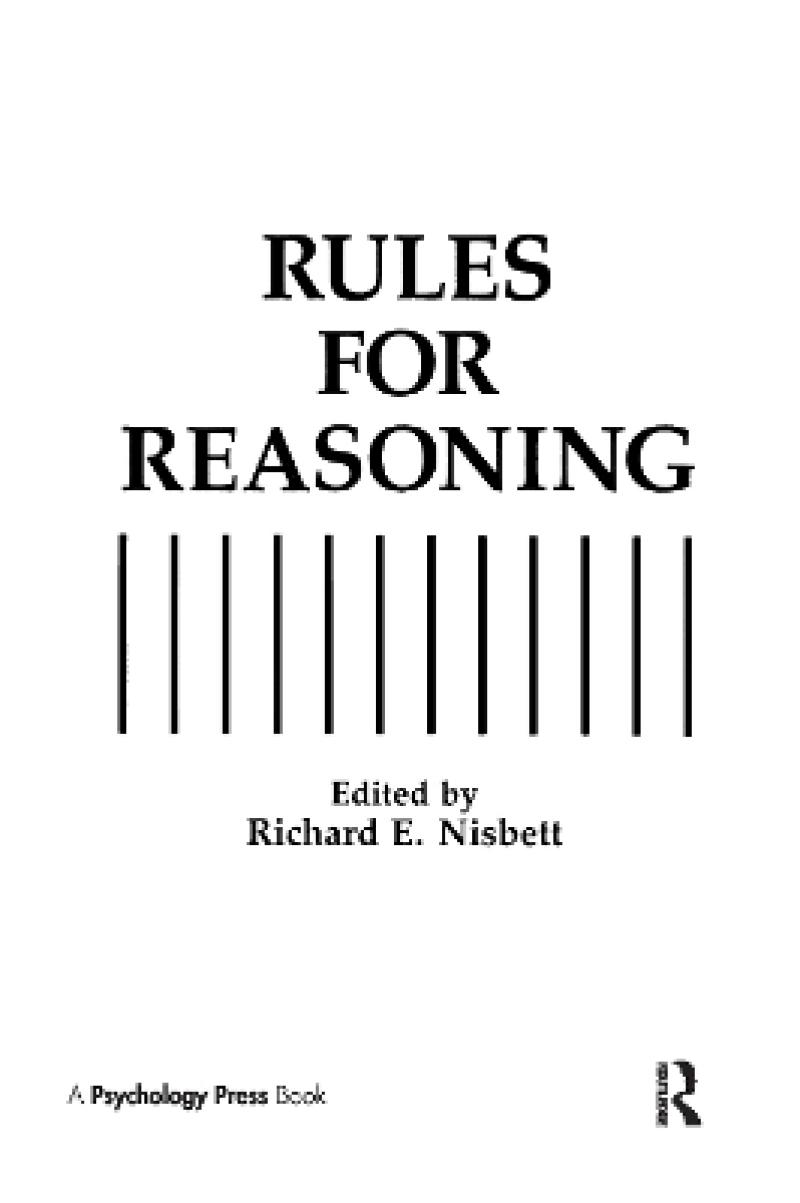Contents: R.E. Nisbett, Reasoning, Abstraction, and the Prejudices of 20th Century Psychology. Part I:Establishing the Existence of Rules for Reasoning.R.E. Nisbett, D.H. Krantz, D. Jepson, Z. Kunda, The Use of Statistical Heuristics in Everyday Reasoning. P. Thagard, R.E. Nisbett, Variability and Confirmation. D. Jepson, D.H. Krantz, R.E. Nisbett, Inductive Reasoning: Competence or Skill? Part II:Teaching Statistical Rules.G.T. Fong, D.H. Krantz, R.E. Nisbett, The Effects of Statistical Training on Thinking About Everyday Problems. G.T. Fong, R.E. Nisbett, Immediate and Delayed Transfer of Training Effects in Statistical Reasoning. Part III:Rules for Conditional Reasoning.P. Cheng, K.J. Holyoak, R.E. Nisbett, L. Oliver, Pragmatic Versus Syntactic Approaches to Training Deductive Reasoning. Part IV:Rules for Causal Reasoning.P. Cheng, R.E. Nisbett, Pragmatic Constraints on Causal Deduction. M.W. Morris, R.E. Nisbett, Tools of the Trade: Deductive Schemas Taught in Psychology and Philosophy. Part V:Rules for Choice.R.P. Larrick, J.N. Morgan, R.E. Nisbett, Teaching the Use of Cost-Benefit Reasoning in Everyday Life. R.P. Larrick, R.E. Nisbett, J.N. Morgan, Who Uses the Normative Rules of Choice? Part VI:Implications for Education.R.E. Nisbett, G.T. Fong, D.R. Lehman, P. Cheng, Teaching Reasoning. D.R. Lehman, R.O. Lempert, R.E. Nisbett, The Effects of Graduate Training on Reasoning: Formal Discipline and Thinking About Everyday Life Events. D.R. Lehman, R.E. Nisbett, A Longitudinal Study of the Effects of Undergraduate Education on Reasoning. Part VII:Implications for Cognitive Science.E.E. Smith, C. Langston, R.E. Nisbett, The Case for Rules in Reasoning.
Les mer
